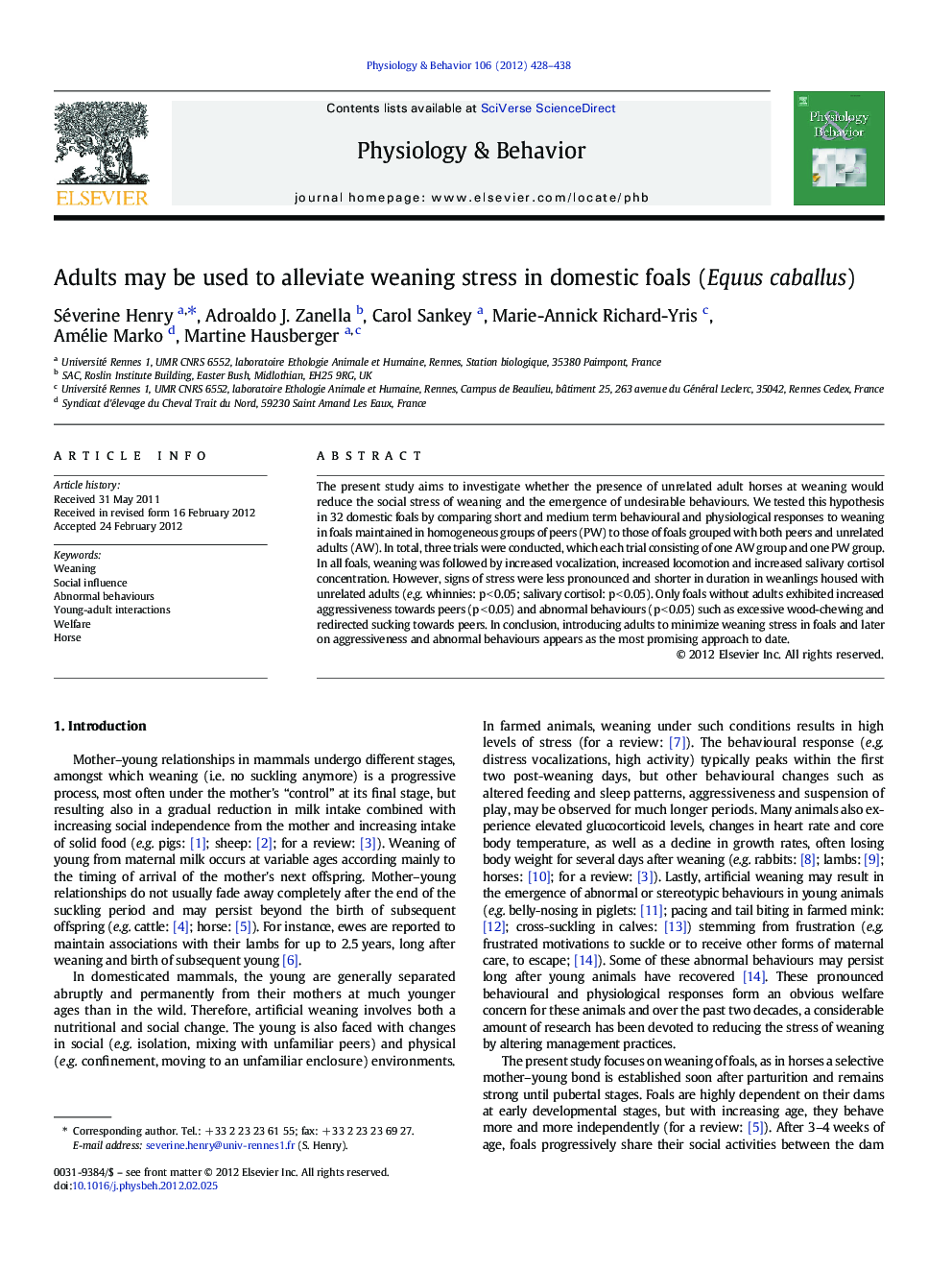| Article ID | Journal | Published Year | Pages | File Type |
|---|---|---|---|---|
| 5924960 | Physiology & Behavior | 2012 | 11 Pages |
The present study aims to investigate whether the presence of unrelated adult horses at weaning would reduce the social stress of weaning and the emergence of undesirable behaviours. We tested this hypothesis in 32 domestic foals by comparing short and medium term behavioural and physiological responses to weaning in foals maintained in homogeneous groups of peers (PW) to those of foals grouped with both peers and unrelated adults (AW). In total, three trials were conducted, which each trial consisting of one AW group and one PW group. In all foals, weaning was followed by increased vocalization, increased locomotion and increased salivary cortisol concentration. However, signs of stress were less pronounced and shorter in duration in weanlings housed with unrelated adults (e.g. whinnies: p < 0.05; salivary cortisol: p < 0.05). Only foals without adults exhibited increased aggressiveness towards peers (p < 0.05) and abnormal behaviours (p < 0.05) such as excessive wood-chewing and redirected sucking towards peers. In conclusion, introducing adults to minimize weaning stress in foals and later on aggressiveness and abnormal behaviours appears as the most promising approach to date.
⺠Maintaining weanlings with unrelated adults allows them to adjust to maternal separation more easily than keeping them in same-age groups. ⺠Aggression and abnormal behaviours are reduced through adult influence. ⺠Social cohesion in groups of weanlings is favoured by adult presence. ⺠Introducing adults to minimize weaning stress appears as the most promising approach to date.
